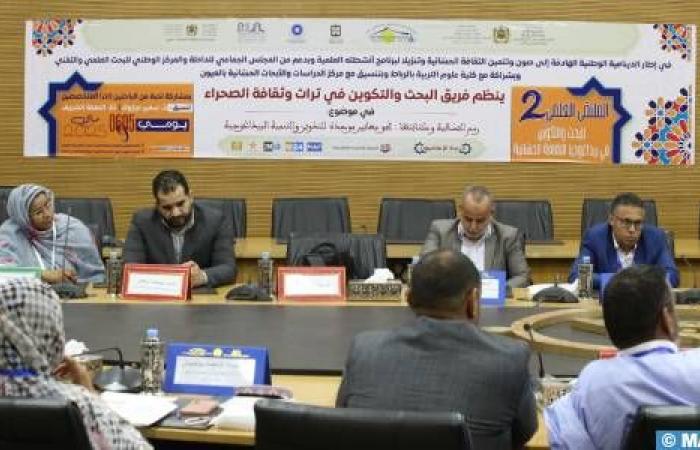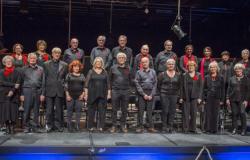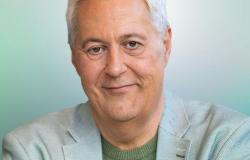The work of the second edition of the scientific conference on the pedagogy of Hassanie culture opened on Monday in Dakhla, on the initiative of the research and training team on the heritage and culture of the Sahara, under the Regional Center for education and Training (CRMEF) of the Dakhla-Oued Eddahab region.
Organized in partnership with the Dakhla-Oued Eddahab Regional Academy of Education and Training (Aref) (AREF), this conference is part of the continuity of academic efforts aimed at strengthening the place of the Hassani dialect in educational practices and developing a collective reflection around its transcription and integration methods in the education system.
In his opening speech, the director of the CRMEF of Dakhla-Oued Eddahab and coordinator of the conference, Mohamed Oubit, stressed that this meeting constitutes a platform conducive to the development of a methodological framework for the transcription of the Hassani dialect, through collective approaches and a structured educational vision.
Mr. Oubit, in this sense, indicated that the transcription of the Hassani dialect requires continuous reflection and an exchange between the actors concerned, taking into account the institutional and cultural dimensions.
-In a statement to the MAP, Naama Cherif, executive at the CRMEF and member of the research team, noted that this meeting aims to enhance scientific efforts relating to the transcription of the Hassani dialect according to unified rules, through the participation of a host of Moroccan and Mauritanian researchers.
For his part, the Mauritanian researcher Mohamed Omar Sidi Mohamed, specialist in Hassani and Amazigh heritage, focused on the importance of this meeting in order to establish the bases of a unified transcription of the Hassani dialect, highlighting the frozen expressions then in the Hassani dialect.
The first day of the conference was marked by several interventions addressing the Hassani dialect in socio-linguistic, educational and cultural components, as well as by the presentation of academic works devoted to Hassanie expression.
The work of this second edition continued on Tuesday with the organization of practical workshops, with a view to building a structured educational approach guaranteeing the integration of the Hassani dialect into school curricula, taking into account the cultural specificities of the provinces of the south of the kingdom.








